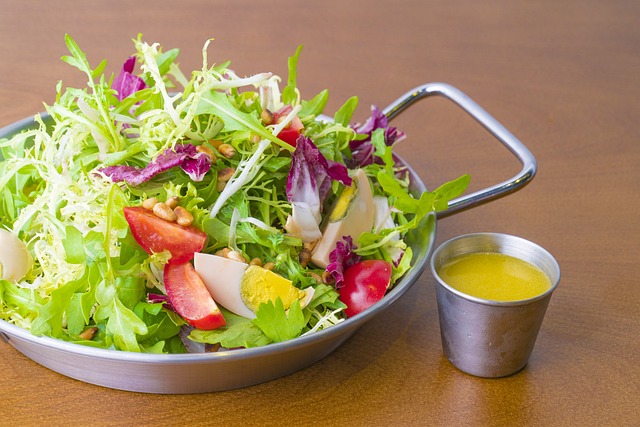Eugene, Oregon's culinary scene is renowned for its deep commitment to sustainability, locally sourced ingredients, and support for regional agriculture. Restaurants prioritize fresh, organic produce and grass-fed meats from nearby farms, shaping seasonal menus that showcase the area's agricultural heritage. This focus on local sourcing strengthens community ties while attracting food lovers seeking authentic, sustainable gastronomic experiences. Eugene's restaurants embrace responsible sourcing, eco-friendly practices, and creative culinary innovation, making it a destination for those who value both delicious food and environmental stewardship.
“Discover how organic farms in Eugene, Oregon, fuel a thriving restaurant industry through sustainable practices. This article explores the city’s vibrant culinary scene, highlighting the symbiotic relationship between local farmers and chefs. By embracing organic methods, Eugene fosters environmental stewardship while delivering exquisite farm-to-table experiences. Learn about the benefits of sustainability in agriculture and its direct impact on enhancing Eugene’s diverse and delicious dining culture.”
- The Rise of Eugene Oregon's Restaurant Scene
- – Exploring the city's culinary landscape
- – How local and organic produce contribute to its success
The Rise of Eugene Oregon's Restaurant Scene

Eugene, Oregon, has witnessed a remarkable evolution in its culinary landscape, driven by a commitment to sustainability and fresh, locally sourced ingredients. The city’s thriving restaurant industry is a testament to the region’s rich agricultural heritage and the growing demand for organic, eco-conscious dining options. With an abundance of nearby organic farms, Eugene restaurants have embraced sustainability as a core principle, ensuring that their menus feature seasonal produce, grass-fed meats, and locally crafted artisanal goods.
This focus on local sourcing has not only enhanced the taste and quality of the food but also fostered a deeper connection between farmers and diners. The result is a vibrant dining scene that celebrates Eugene’s unique culinary identity, attracting both locals and visitors seeking authentic, sustainable gastronomic experiences. As a result, the city has become a destination for food enthusiasts who appreciate the importance of supporting local agriculture and sustainable practices in the restaurant industry.
– Exploring the city's culinary landscape

Eugene, Oregon, boasts a thriving restaurant scene that is closely tied to the region’s abundant organic farms. The city’s culinary landscape is a testament to the commitment to sustainability and fresh, locally sourced ingredients. Diners can enjoy seasonal menus that showcase the best of what Eugene’s farms have to offer, from crisp vegetables straight from the field to tender meats raised humanely in nearby ranches.
This focus on sustainability isn’t just a trend; it’s become a defining characteristic of Eugene’s restaurant culture. Chefs collaborate with local farmers, ensuring that every dish tells a story about its origins. The result is a vibrant and ever-evolving culinary experience that reflects the region’s rich natural resources and the community’s passion for healthy, ethical food.
– How local and organic produce contribute to its success

Eugene, Oregon’s thriving restaurant scene is greatly enhanced by its local and organic produce. The city’s strong commitment to sustainability ensures that restaurants have access to fresh, high-quality ingredients grown within a short distance, reducing food miles and carbon footprint. This not only supports local farmers but also provides diners with an exceptional culinary experience, as the seasonality of the produce lends itself to creative and diverse menu offerings.
The availability of organic produce fosters innovation among chefs who can experiment with unique flavors and textures, creating signature dishes that attract patrons from near and far. Moreover, the focus on sustainability extends beyond farms; restaurants in Eugene prioritize responsible sourcing, waste reduction, and eco-friendly practices, contributing to a holistic approach to environmental stewardship that resonates with both locals and visitors alike.






